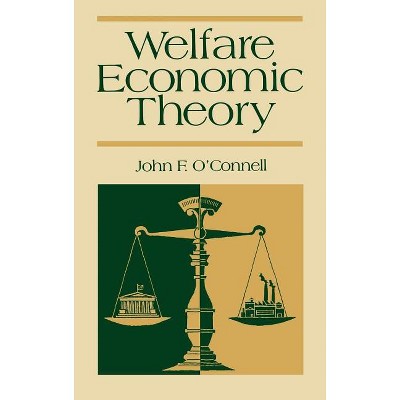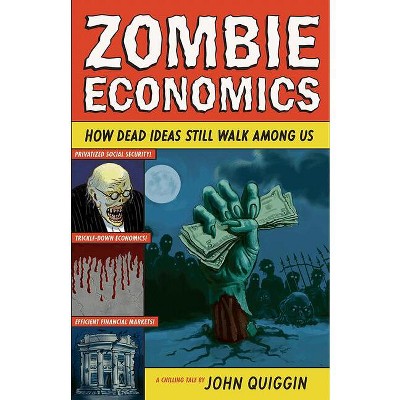Sponsored

The Economics of Welfare - by David Z Rich (Hardcover)
In Stock
Sponsored
About this item
Highlights
- Building on his earlier Praeger work, Contemporary Economics, Rich here examines current and historical, theoretical and practical, notions of welfare economics.
- About the Author: DAVID Z. RICH is Research Assistant in Economics at Tel Aviv University.
- 212 Pages
- Business + Money Management, Economics
Description
About the Book
Building on his earlier Praeger work, Contemporary Economics, Rich here examines current and historical, theoretical and practical, notions of welfare economics. Through an in-depth discussion of the theories of Edgeworth, Pareto, and Slutsky, the author analyzes how the present approach to welfare economics developed and how it has failed in significant ways to alleviate the problems of poverty and unemployment. Rich then develops a new theory of welfare economics based on the concept of dynamic disequilibrium and designed to respond to present-day economic and social realities. Scholars and students of both economics and public policy will find Rich's work a significant contribution to contemporary debates on welfare policy directions.
Divided into four parts, the volume begins by redefining the problem of welfare economics. In contrast to those who see the problem as simply the redistribution of income, Rich argues that the challenge today is to use our present economic system to absorb welfare recipients and make them productive members of the economy. He argues further that current approaches to the welfare situation are Keynesian and therefore relevant to a different era--that of the Great Depression. In subsequent chapters, Rich develops his theory of contemporary welfare economics, utilizing a welfare utility function and incorporating the components of government, industry, and labor. Designed to make the economy more efficient without the redistribution of income, Rich's proposals include making welfare payments contingent upon training and applying training to the needs of the business sector. Only by employing a theory more rooted in contemporary realities, Rich argues, can we ultimately remove the heavy burden of welfare so detrimental to large segments of society.
Book Synopsis
Building on his earlier Praeger work, Contemporary Economics, Rich here examines current and historical, theoretical and practical, notions of welfare economics. Through an in-depth discussion of the theories of Edgeworth, Pareto, and Slutsky, the author analyzes how the present approach to welfare economics developed and how it has failed in significant ways to alleviate the problems of poverty and unemployment. Rich then develops a new theory of welfare economics based on the concept of dynamic disequilibrium and designed to respond to present-day economic and social realities. Scholars and students of both economics and public policy will find Rich's work a significant contribution to contemporary debates on welfare policy directions.
Divided into four parts, the volume begins by redefining the problem of welfare economics. In contrast to those who see the problem as simply the redistribution of income, Rich argues that the challenge today is to use our present economic system to absorb welfare recipients and make them productive members of the economy. He argues further that current approaches to the welfare situation are Keynesian and therefore relevant to a different era--that of the Great Depression. In subsequent chapters, Rich develops his theory of contemporary welfare economics, utilizing a welfare utility function and incorporating the components of government, industry, and labor. Designed to make the economy more efficient without the redistribution of income, Rich's proposals include making welfare payments contingent upon training and applying training to the needs of the business sector. Only by employing a theory more rooted in contemporary realities, Rich argues, can we ultimately remove the heavy burden of welfare so detrimental to large segments of society.About the Author
DAVID Z. RICH is Research Assistant in Economics at Tel Aviv University. His previous works include The Dynamics of Knowledge (Greenwood, 1988) and Contemporary Economics (Praeger, 1986).










